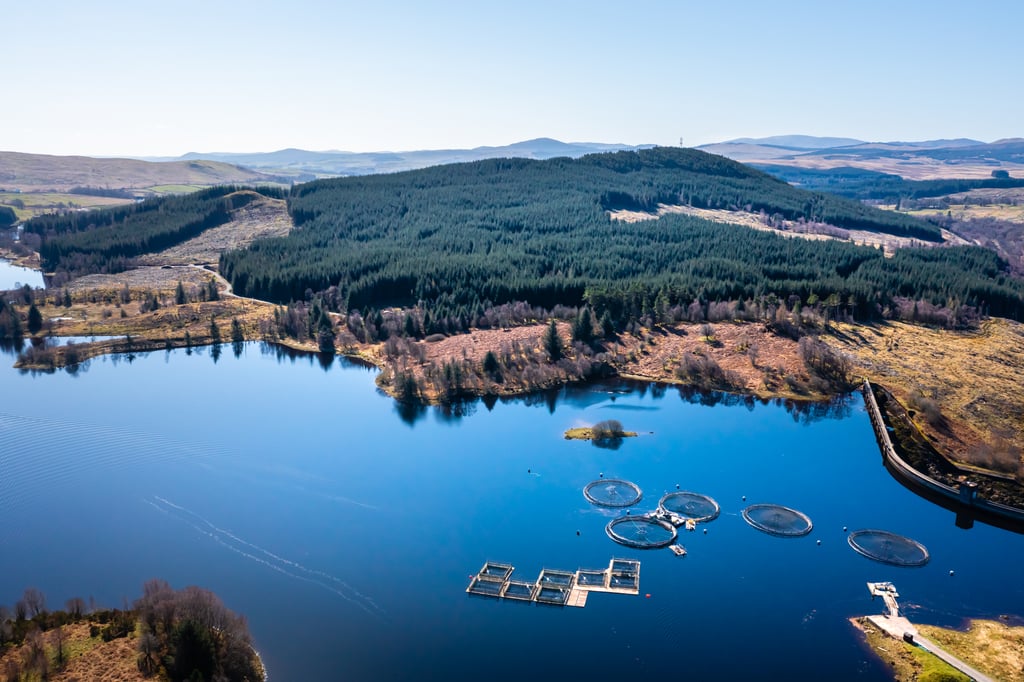Human rights violations in the seafood industry have been widely reported since the early 2010s.
Initially, the reports focused on fisheries operating out of Southeast Asia and West Africa, where Illegal, Unreported and Unregulated (IUU) fishing posed particular risks. By 2020, the geographic scope of the industry risks continued to expand dramatically and become more widely acknowledged and understood; the US Report to Congress ‘Human Trafficking in the Seafood Supply Chain Section’1 listed 20 countries as “high risk for human trafficking”, touching on every continent except for North America2. Industry activities of processing, aquaculture and vessels were all highlighted as high risk.
Countries once deemed “medium” or “low” risk for responsible sourcing are now increasingly classified as high-risk when it comes to seafood. A glaring example is Ecuador, where mangrove deforestation has surged by 70%, driven primarily by shrimp farming. Ecuador now supplies 32% of Europe’s shrimp imports, amplifying the environmental impact. In the UK, the seafood industry faces a different set of troubling issues, including reports of workers lacking proper permits, excessive and unpaid overtime, wage theft and even cases of bullying and death threats3
Perhaps even more shocking, 20% of the Withhold Release Orders (WROs) issued by the US CBP between 2020 and 2022 were against companies in the seafood industry. In 2024, seafood processing sites audited under a globally recognised sustainable seafood certification in China were highlighted in media reports with accusations of forced labour, and an additional seafood company was added to the UFLPA sanction list – a list of entities linked to forced labour in China’s Xinjiang region. Another example is the recent attention called to key importers of aquaculture products into the US, particularly India, as concerns around sourcing practices rise.
Once you have seafood identified as a high-risk product, where do you begin? Retailers may have 1,000s of tier 1 suppliers – having visibility to the vessels and farms underneath- and the violations that may be occurring is a daunting and expensive task.
With the exception of some industry leaders, like Thai Union – who developed their own standard and assessment programme – until recently, the industry has largely relied on third party voluntary certifications. Negative media exposure tended to drive new retailer commitments to certifications that have limited human rights components.
As companies work to conduct more thorough due diligence to meet new regulatory requirements – recognising that risk extends beyond specific geographies or species – voluntary certifications have proven to be just one part of the solution. Whilst they do provide a threshold of compliance, they are also costly, offer little flexibility, and may have a have a long onboarding period. Likewise, not all voluntary certifications have a robust human rights component.
There have been several efforts to expand the industry's approach to risk by looking beyond just the reliance on certifications. For example, Seafood Watch developed metrics, including 80 unique risk indicators, to help guide companies on where to prioritise their efforts in addressing social responsibility risk.
Another example is the Social Responsibility Assessment tool, developed through a multi-stakeholder initiative. This tool emerged as a resource that not only helps organisations internally assess risk and identify opportunities for growth, but also enables data sharing across the industry, reducing audit fatigue and shifting the focus from compliance, to tackling root causes.
There have also been initiatives that focus on collaboration and collectively addressing root causes. For example, several retailers jointly conducted a human rights impact assessment and remediation in Shrimp in India in 2023. LRQA has begun the “Grievance Mechanism Pilot Development” in partnership with the Seafood Task Force (STF) and Humanity Research Consultancy (HRC). Generously funded and supported by Humanity United (HU) and the Freedom Fund (FF)4, this initiative is a crucial step toward establishing a consultative, best-practice process for developing a safe and effective grievance mechanism for tuna fishermen.
What does all this mean?
Our expectation is that we will see the following five trends emerge and rapidly accelerate in speed and scope over the next decade:
- We will continue to see growth in support for different type interventions, beyond limited scope certifications.
- Responsible seafood programmes will increasingly follow the model of broader Human Rights and Environmental Due Diligence (HREDD), including risk assessments (prioritisation), remediation and reporting.
- We will see an increased focus on bringing together vast amounts of data in smarter ways so that companies are able to understand and prioritise. Dispersed and un-analysable data is the number one challenge cited by retailers on actioning seafood responsible sourcing effectively.
- We will see significant increases in vendor ownership where vendors take ownership of responsible sourcing management systems and provide the relevant data to retailers.
- There will be a shift towards industry alignment for global governance over responsible sourcing, marking a shift away from Non-Governmental Organisation (NGO) driven pilot projects.
A call for collective action
The seafood industry is at a pivotal moment. Consumers and businesses are becoming increasingly aware of the environmental, social and ethical implications of their choices. Navigating this complex landscape requires a nuanced understanding of sustainability claims and a commitment to collaboration, innovation and accountability. By embracing innovative strategies and aligning on global governance, we can address human rights risks while ensuring the long-term sustainability of the sector.
At LRQA, we are committed to helping our clients advance their responsible sourcing practices, tackle systemic issues and drive meaningful change in the seafood industry.










